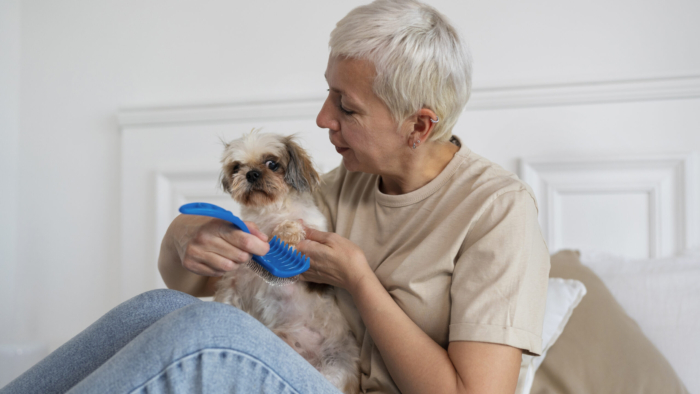Understanding the Mental Health of Senior Dogs
As dogs grow older, their body as well as their mind start to change. Most of the time, we pay attention to their physical problems (such as arthritis, dental issues, or heart conditions), but we often ignore their mental health. Understanding and taking care of the mental well-being of senior dogs is just as important as caring for their physical health.
Common Mental Health Issues in Senior Dogs
- Cognitive Dysfunction Syndrome (Dog Dementia)
Just like humans, dogs can also develop dementia as they age. They may start forgetting things, become confused, and show changes in their daily habits. - Irritability and Anxiety
With reduced hearing and vision, senior dogs often feel insecure or frightened. This can make them easily irritable or anxious. - Depression
When their energy decreases and they are no longer able to play or run as before, they may feel sadness or loneliness. Sometimes this also happens when there are changes in the family (such as a new pet or person). - Sleep Disturbances
Many senior dogs stay restless at night and sleep more during the day. This can be a sign of mental changes.
How to Take Care of Their Mental Health
- Maintain a Routine – A regular schedule gives them a sense of security.
- Engage in Light Activities – Brain games, puzzle toys, or short walks help keep them active.
- Give Love and Companionship – Spending time, gently petting, and talking to them makes them feel safe and loved.
- Consult a Vet – If you notice any unusual behavior, consult a veterinarian immediately.
The mental health of senior dogs is just as important as their physical health. Understanding them, recognizing their changes, and giving proper care is the key to ensuring they live a happy and peaceful life.


Add a Comment